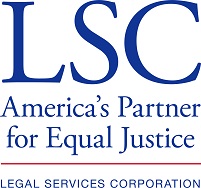Medical Help for Children and Families
There are various Medicaid programs for low-income children and families. For children and families to be eligible the head of household must meet specified asset and income limitations.
What are the different medical programs for children?
Below are some of the different medical programs for children with a brief description of the program eligibility requirements:
- Prenatal Plus Medicaid (Age 0-1 year) - Eligibility: Child must be born to a woman on Medicaid, no asset or income limits.
- Postnatal Plus Medicaid (ages 0-1 year) - Eligibility: A child can only be covered by the Postnatal Program (PN+) if the mother was eligible for Medicaid for the month of the birth. If the mother did not qualify for Medicaid for the month of birth, the child may be eligible for the Newborn Program (NB).
- Newborn Medicaid (Age 0-5 years) - Eligibility: HH income must be at 133% of poverty; child cannot be eligible for Family Medicaid, there are no asset limits, and no spend-down is allowed.
- Newborn Plus Medicaid (Ages 6-19 years) - Eligibility: HH income must be at 100% of poverty; child cannot be eligible for Family Medicaid, no spend-down is allowed.
- Child Medicaid (ages 0-19 years) - Eligibility: HH income must be at 100% of poverty; spend-down allowed; child cannot be eligible for Family Medicaid, Newborn Medicaid, or Newborn Plus Medicaid.
- Technology Dependent Children
- Foster Care Medicaid (ages 0-19 years) - Eligibility: Child must have been removed from the home and be in the custody of the state. The child is currently in placement and foster care maintenance payments are being made.
- Subsidized Adoptions
- CHIP - Child Health Insurance Program (ages 1-19 years) - Eligibility:A child cannot be eligible for any other Medicaid Program. A child cannot have access to medical insurance for which the cost of the premiums are less than 5% of the household’s gross monthly income. Each CHIP program has different co-pays and deductibles. Also, your child may be eligible for UPP and a CHIP program. Thus, you may want to compare services provided as well as co-pays and deductibles. For co-pays, services and deductibles specific to each CHIP plan talk to your DWS worker or go on line. There are three different CHIP programs:
- CHIP, Plan “A” – HH income must be between 0 -100% of poverty
- CHIP, Plan “B” – HH income must be between 101- 150% of poverty.
- CHIP, Plan “C”—HH income must be between 151- 200% of poverty.
- Utah’s Premium Partnership Program (UPP) - UPP is a Medicaid Program that helps qualified working individuals pay the cost of employer sponsored health insurance. The program reimburses a qualified individual up to $150.00 per adult and $100.00 per child each month toward medical insurance premiums. To be eligible the individual must have access to employer sponsored medical insurance; the cost to the employee for insurance must be 5% or more of their gross monthly income; and the individual cannot be eligible for Medicare, VA Benefits, or any other Medicaid Program. The individual must also meet income guidelines.
You must apply for the UPP program before the date your health insurance coverage begins. For more information on the UPP program or to apply for the program call 1-888-222-2542.
How do I apply for medical assistance for my child and our family?
Apply online at one of the following:
Department of Workforce services or Utah Clicks
What are the different medical programs for families?
Below is a list of some of the medical programs for families:
- Family Medicaid (FM-O)
- Regular Family Medicaid (FM-F)
- Prenatal Program (PN)
- Postnatal Program (PN+)
- Pregnant Women (PG)
- Baby Your Baby
- Utah Premium Partnership for Health Insurance (UPP)
How do I apply for medical assistance?
You can apply online at the Department of Workforce Services website or you can request an application form by mail through your local Medicaid office.
Where can I go to find other resources for Medical help?
The Department of Workforce Services website has some helpful resources.
Topics

